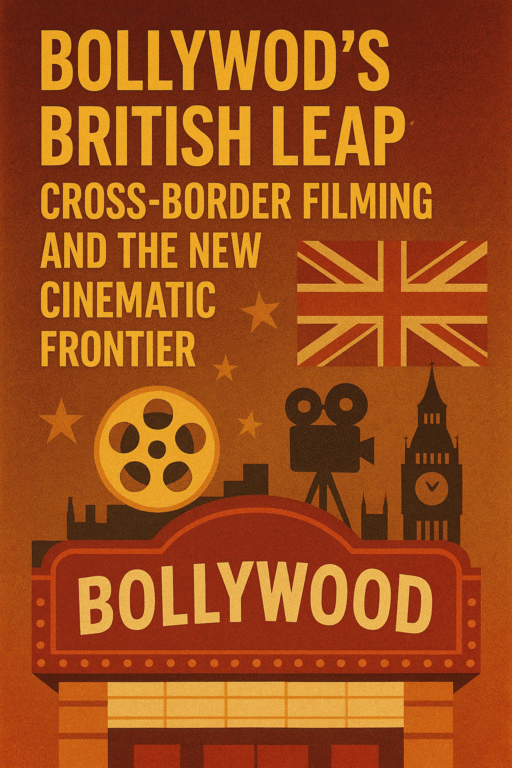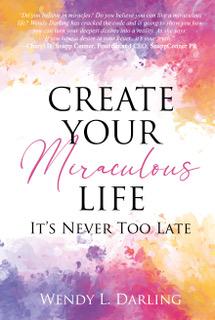TV & MOVIES
Acclaimed Filmmaker Anurag Kashyap Unveils Powerful Short Film ‘Bebaak

Mumbai, India – Renowned filmmaker Anurag Kashyap is gearing up for the release of his latest cinematic venture, ‘Bebaak.’ Set to premiere on October 1 as part of the Jio Cinema Film Fest, this short film is poised to tackle the formidable issues of societal patriarchy and the suppression of women’s empowerment within religious contexts.
In a recent statement, Kashyap offered an insightful glimpse into the driving force behind ‘Bebaak,’ emphasizing its vital significance. He shared, “The creation of this film was very necessary, and the perspective is very important.” Kashyap’s motivation draws from his extensive international travels and cross-cultural friendships, encompassing countries as diverse as Pakistan, Iran, Iraq, Afghanistan, Israel, Egypt, and Morocco. These experiences have been instrumental in shaping the narrative of ‘Bebaak,’ as they provided Kashyap with a profound understanding of the struggles and challenges faced by individuals from these varied backgrounds.
‘Bebaak’ emerges as a powerful vehicle to scrutinize societal norms that perpetuate gender inequality, making it a significant contribution to the ongoing discourse on women’s rights and empowerment. Kashyap’s dedication to amplifying women’s voices and experiences is palpable throughout the film.
Anurag Kashyap, in his role as a producer, has assembled an impressive ensemble cast for ‘Bebaak.’ The film stars acting stalwarts Nawazuddin Siddiqui, Sarah Hashmi, Sheeba Chadha, and Vipin Sharma. Their combined talent promises to breathe life into this thought-provoking narrative.
The film’s storyline revolves around the inspiring journey of Fatima, a young Muslim girl who hails from a modest Muslim family with three siblings. Fatima nurtures dreams of becoming an architect, a goal that seems at odds with societal expectations. ‘Bebaak’ promises to delve into Fatima’s compelling story, shedding light on her struggles and aspirations.
As a talk show host deeply invested in the world of entertainment and media, I wholeheartedly endorse Kashyap’s courageous endeavor. ‘Bebaak’ not only addresses a pertinent issue but also provides a platform for thoughtful introspection. It challenges societal norms and encourages conversations that are long overdue.
In a society where gender inequality continues to persist, and where women’s voices have been stifled for far too long, ‘Bebaak’ has the potential to be a catalyst for change. It’s not just a film; it’s a mirror reflecting back at us the disparities and biases that still exist in our world. It forces us to confront uncomfortable truths and encourages us to engage in meaningful dialogues.
However, it’s essential to acknowledge that when tackling such sensitive subjects, controversy often follows. ‘Bebaak’ may well become a lightning rod for heated debates, sparking both praise and criticism. It’s a testament to the power of art that it can provoke such strong reactions.
As we anticipate the release of ‘Bebaak’ on October 1, let us remember that cinema has the remarkable ability to influence society. It can raise awareness, challenge stereotypes, and inspire change. Anurag Kashyap’s ‘Bebaak’ has the potential to do all of these things and more. It is a cinematic endeavor that invites us to confront societal patriarchy and male insecurity, urging us to envision a more equitable and just future. In doing so, it deserves our attention, respect, and thoughtful consideration.
By Harry Johal, Talk Show Host at CarryOnHarry
TV & MOVIES
The Rise of OTT as the New Box Office

The Rise of OTT as the New Box Office
Once viewed as an alternative platform for offbeat cinema, OTT streaming has now become the new box office. Services like Netflix, Amazon Prime Video, Disney+ Hotstar, and JioCinema have blurred the lines between traditional film releases and digital premieres. Films now transition from theatre to streaming in record time, capitalizing on binge-hungry audiences. For stars, producers, and even entertainment journalists, success metrics have changed — viewership minutes are replacing weekend grosses. The result: OTT sits at the center of India’s entertainment economy, steering ad spends, influencing production budgets, and shaping the stories greenlit each quarter.
Entertainment News in the Age of Instant Streaming
In the digital ecosystem, entertainment journalism has transformed from the red carpet to the real-time feed. Every Friday now brings not just a theatrical release but multiple digital premieres across languages. Reporters have pivoted from set visits to decoding content strategy and from star gossip to viewership data. The new buzzwords: streaming engagement, AI-driven recommendations, and cross-platform visibility. Newsrooms like LiveNewsVault Entertainment and partners at CarryOnHarry now run OTT review dashboards, instant alerts, and trend explainers as core products.
Regional Powerhouses Take the Lead
India’s OTT revolution is inherently multilingual. Regional industries — Tamil, Telugu, Malayalam, Bengali, and Marathi — are not secondary players but growth engines. Breakout series and films prove that strong storytelling transcends language; national audiences discover talent via dubs, subs, and algorithmic curation. As fame democratizes, coverage widens: interviews and reviews from Kochi to Kolkata now trend pan-India within hours.
From Red Carpets to Reels: Celebrity PR Gets a Digital Makeover
Public relations and celebrity branding have undergone a dramatic shift. Actors cultivate fan engagement through behind-the-scenes reels, live Q&As, and platform-native collaborations. Reporters have become hybrid creators — part journalist, part analyst. Innovative campaigns (password-gated “secret reels,” ARG-style teasers, fan-first premieres) show how marketing has evolved for the scroll era: faster, smarter, and multimedia-first.
The Future: Where Algorithms Meet Art
As AI-driven curation becomes integral to discovery, the future of entertainment news is personalization. Editors increasingly collaborate with analytics to predict which categories — crime thriller, social drama, or period biopic — will surge. Independent desks leverage similar tools to deliver hyper-personalized reviews, streaming alerts, and creator spotlights tailored to micro-audiences. The story no longer ends at the screen; it continues in how we cover the screen.
Conclusion: The Digital Stage Expands
OTT has reinvented both entertainment and journalism. What used to be a Friday column is now a seven-day newsroom linking creators, audiences, and platforms through one digital thread. The future of entertainment news is streaming-first, global-minded, and endlessly connected. The screens may be smaller — the stories are larger than ever.
TV & MOVIES
Bollywood’s British Leap: Cross‑Border Filming and the New Cinematic Frontier

Bollywood’s British Leap: Cross‑Border Filming and the New Cinematic Frontier
Behind this move lie incentives, economic strategy, and symbolic ambition. The question now: can Bollywood transplant its cinematic heart without losing its cultural soul?
The announcement came via the corridors of power: British Prime Minister Keir Starmer revealed during his India visit that three Bollywood productions will be made in Britain from early 2026.
Central to the pact is Yash Raj Films, which had paused major UK shoots for eight years, now returning as the anchor for this cross‑border experiment.
Expected to generate around 3,000 jobs, the deal is as much diplomatic optics as industrial infrastructure.For Bollywood observers, it is a litmus test: can Indian storytelling adapt to foreign soil without feeling foreign?
The Vanguard: Yash Raj Leads the Charge
Yash Raj Films (YRF), long a stalwart of big‑scale Hindi cinema, is the first name attached to this UK dream.With its track record of lavish musicals, romance, and action — from Dilwale Dulhania Le Jayenge to Pathaan — YRF carries both brand capital and creative weight.Their reentry into Britain marks more than nostalgia: it signals a strategic pivot toward outward expansion.
But leading this frontier is no easy role. They will need to balance spectacle and intimacy, and reconcile Indian aesthetics with British logistical realities.
Incentives, Co‑Productions & Tax Mechanics
The financial architecture is critical. As part of the agreement, Indian and UK bodies will pursue co‑production treaties, resource sharing accords, and reciprocal benefits.UK’s creative industries already contribute around £12 billion annually and support ~90,000 jobs — the British case is that international shoots strengthen local ecosystems.Rebates, studio partnerships (e.g. Pinewood, Elstree) and infrastructure support are expected to sweeten the deal.But the devil is in execution: permissions, union rules, import logistics, film quotas, and cross‑border revenue sharing could complicate creative freedom.
Opportunities (and Tensions) for UK Crews & Cultural Exchange
Locally, film professionals in the UK see a surge of opportunity: from lighting crews to VFX houses, from set construction to post‑production houses. The promise of roughly 3,000 new roles is a significant magnet.Yet the collaboration demands sensitivity: will Indian team leads integrate, or default to bringing crews from India? Will local talent be collaborators or footnotes?
There is also the cultural friction of narratives: Indian stories often depend on linguistic nuance, emotional idioms, and socio‑cultural reference. Translating such texture across geographies — e.g. a diasporic scene set in Leicester, or a heritage plot in rural India but shot in the Cotswolds — requires careful calibration.
Comparative Lens: UK, US, Middle East & Southeast Asia
Bollywood has already flirted with foreign stages: films set in New York, Dubai, London, Malaysia, and Bangkok. But these were episodic — song sequences or a few days’ location work.
What’s novel now is full production immersion: shooting entire blocks abroad, and using foreign studios as main hubs rather than occasional backdrops.The US has always been a lure, but bureaucratic cost, limited subsidy infrastructure, and union complexity have tempered enthusiasm. The Middle East (Dubai, Abu Dhabi) offers tax breaks and modern facilities, but lacks the anchor of diaspora and cultural familiarity. Southeast Asia has drawn Indian shoots for lower cost, but not the prestige of UK or US branding.The UK’s strength lies in infrastructure, cultural connectivity (Indian diaspora, shared colonial history), institutional film bodies, and scenic legacy. If it succeeds, we may witness a regional shift: Bollywood’s second “home” might well be London.
For now, the journey begins: the lens crosses the sea, and the world watches whether Bollywood’s soul can find new soil and still breathe.
-

 Editor's Choice3 months ago
Editor's Choice3 months agoRanveer Singh and Deepika Padukone Reunite for New Romantic Comedy
-

 Editor's Choice9 months ago
Editor's Choice9 months agoReview: Rekhachithram (2025) – A Masterful Blend of Mystery and Redemption
-

 People's Choice5 months ago
People's Choice5 months agoBollywood in August 2025: A Landscape of Sequels, Social Commentary, and Star Power
-

 Authors and Artists4 years ago
Authors and Artists4 years agoCreate Your Miraculous Life: It’s Never Too Late Wendy L. Darling







